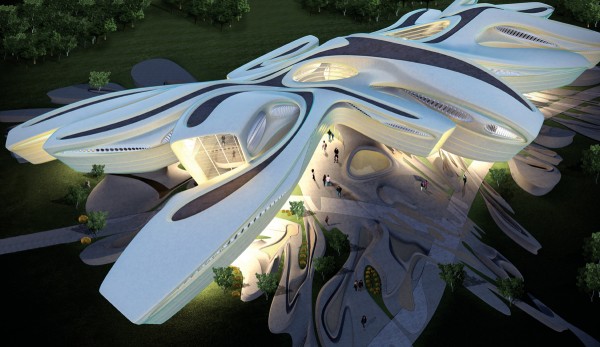
This building proposal for the Taipei Museum of Contemporary Art by OTA+ challenges the traditional definition of a museum
and the conventional relationship between building and site. The ground
floor of the building is reduced to a nominal footprint, enclosing only
enough space for basic services, structure and ticketing functions. The
ground plane is primarily reserved for exterior public space,
including an art park, Hall of Fame, and garden walk. The bulk of the
program and building mass are split by the open ground floor. Half of
the building is coupled with the earth while the other half hovers in
the air. The purpose is two-fold; to minimize the damaging effects of
extreme local weather by harnessing environmental flows toward
productive outcomes and to re-conceptualize the identity of a modern art museum.
The manicured roof plane of the below ground program is pocketed with
water absorbing vegetation and catchment systems, while the hovering
museum above expands to form open atriums, allowing diffuse light to
brighten the space and passive airflow to comfortably condition the
building.
The program of the museum is interconnected. The Contemporary Museum
of Art, Children’s Museum of Art and Administration are located within
the floating mass. The lecture hall, parking, art resource center,
library and classrooms are located below ground. The programs below
ground are easily accessible and directly connected through vertical
circulation tubes, providing both structural support for the floating
mass above and space for movement systems, such as escalators, stairs
and elevators between levels. All of the below ground programs are
flooded with diffuse light passing through skylights that penetrate the
landscape.
The Contemporary Museum of Art and Children’s Museum of Art are
protected from harsh direct sunlight. Though the legs of the floating
expanded mass open to large glazed windows, framing views of the
surrounding context, the glazing is recessed and deep overhangs protect
the art. Additionally, a series of large fin diffusers scatter light and
wash the walls evenly. The diffusers are also equipped with
sensor-driven controls that circulate fresh air throughout the space.
The positioning of the museum on the site allows for easy access
regardless of how one arrives. All paths lead to the center of the site
and to a lobby for each museum. The existing road is kept and further
augmented to provide access to subterranean parking and the tour bus
drop-off. The design of the landscape spreads across the road and bike
paths, becoming a flat, patterned inlay. The visual presence of
vehicular traffic fades while the meandering pedestrian pathways
dominate the ground plane.
The design of the landscape includes a field of elevated berms,
meandering paths, and bench seating, all of which wrap around pockets of
different land patches. Some patches are filled with natural vegetation
that collect rainwater that is reused to irrigate the site. Other
patches are filled with sand and gravel, covering a more substantial
overflow and catchment system. Finally, where program lies below, large
skylights provide diffuse light into the space. By freeing the ground
plane of enclosed semi-public space, the interface between the museum
and the site offers a new experience of a museum; one that is open,
friendly, and welcoming.
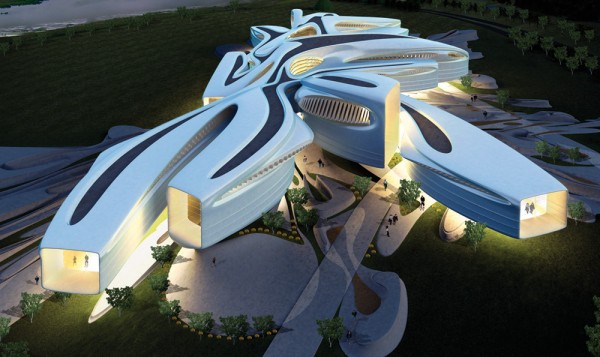
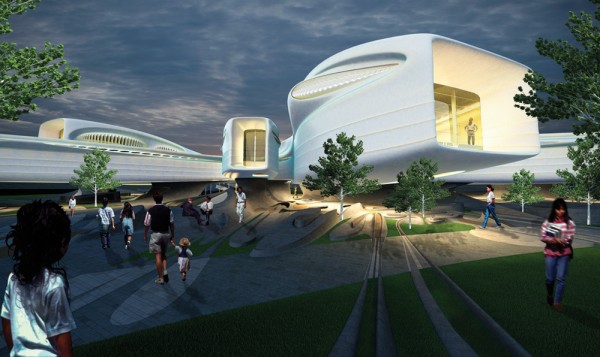
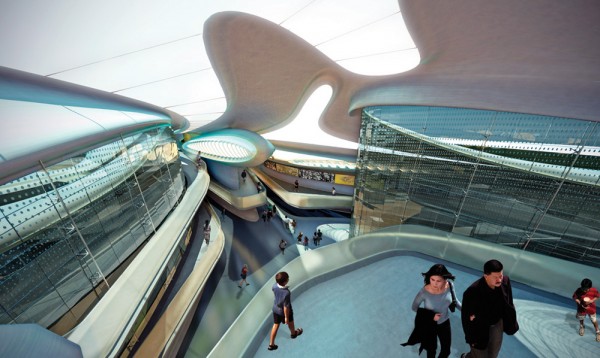
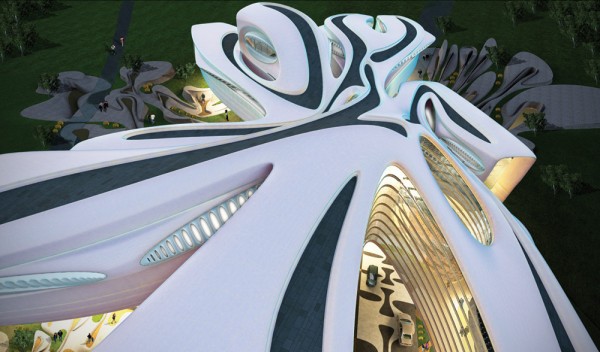
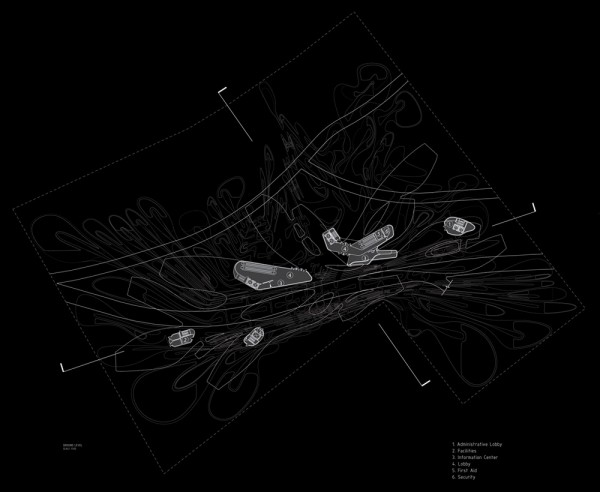
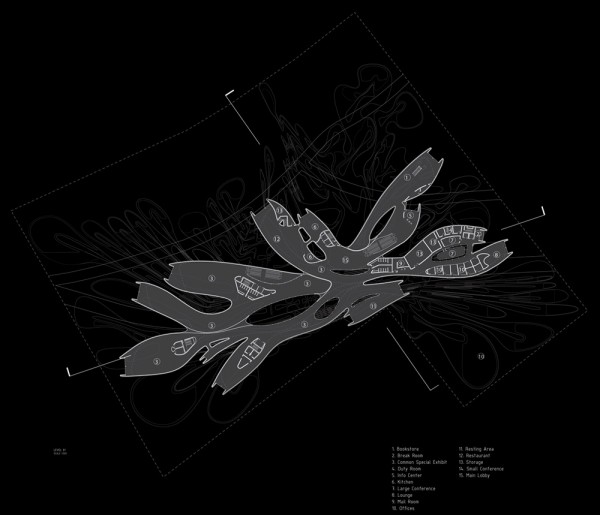
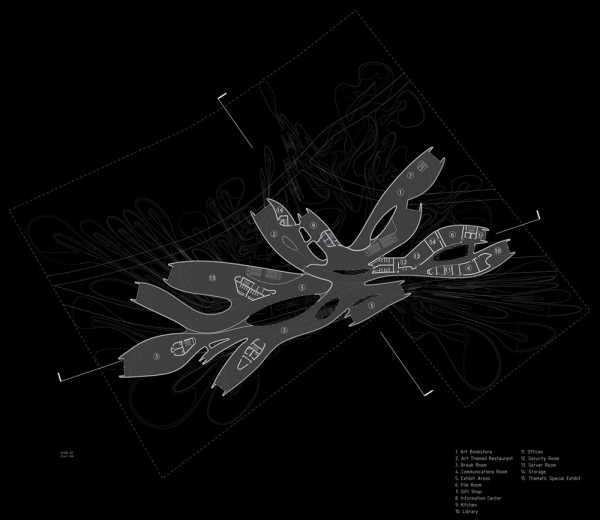
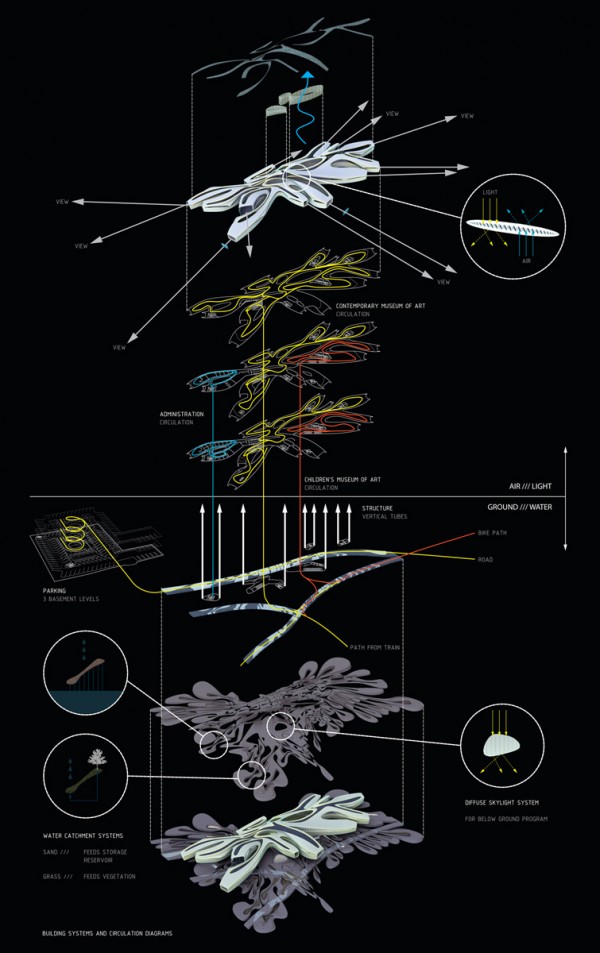


-> New issue: "eVolo 04 - Re-imagining the Contemporary Museum, Exhibition & Performance Space"

Источник: http://www.evolo.us/architecture/taipei-museum-of-contemporary-art-ota/ | 
